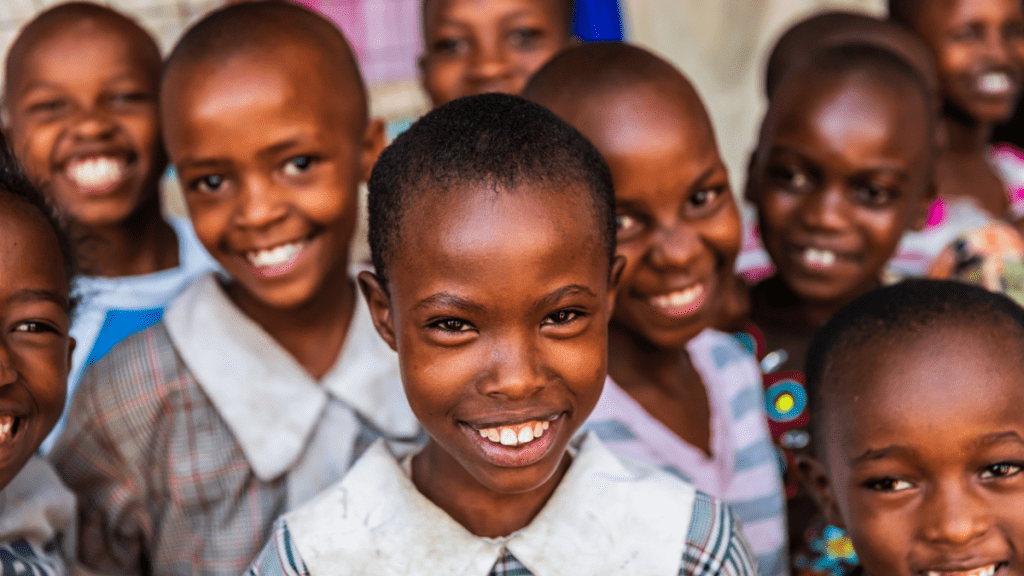ABTA – The Travel Association, Border Force and Hope and Homes for Children collaborate for the campaign
 ABTA – The Travel Association, Border Force and Hope and Homes for Children collaborate for the campaign against orphanage tourism this October
ABTA – The Travel Association, Border Force and Hope and Homes for Children collaborate for the campaign against orphanage tourism this October
UK tourists are being advised against visiting or volunteering in overseas orphanages through a new campaign #EndOrphanageTourism.
ABTA, Border Force and international charity Hope and Homes for Children have joined forces to make people aware that many overseas orphanages are money-making businesses that exploit children to make money from tourists.
Today, Tuesday 18 October, which is Anti-Slavery Day, Border Force Officers and representatives from ABTA and Hope and Homes for Children, will be speaking to holidaymakers departing from Heathrow Airport to orphanage tourism hotspots. Similar activities have been taking place at Gatwick and Manchester airports.
Orphanage tourism is where well-meaning tourists pay to visit orphanages abroad as part of holiday packages, day trip excursions, tours or gap year programmes. Often such payments from tourists will flow directly to the orphanage owners rather than the care of children and contribute to exploitation, neglect and abuse. Common destinations for orphanage tourism include Africa, South Asia and South and Central America.
5.4 million children live in orphanages worldwide today, yet eight out of 10 of these children are not orphans. Most have living family who could care for them at home, but they’re needlessly in orphanages because of poverty, disability, exploitation, natural disasters or war. Many corrupt orphanages take children from struggling parents, promising to provide food and education. Once a child is in an orphanage, in a tourist hotspot far away from their home, parents can be prevented from visiting and the children can be used as commodities for commercial gain.
Mark Tanzer ABTA Chief Executive said:
“While volunteering in orphanages may seem like a noble thing to do, what most people don’t realise is that instead of helping vulnerable children, they are sustaining a practice which is ultimately unethical and detrimental to children and communities in these destinations.
“By working with Border Force and Hope and Homes for Children, we can highlight this global issue and help raise awareness of child safeguarding in the travel industry.”
Instead of visiting overseas orphanages, people are being encouraged to buy from local shops and markets. This can help to break the cycle of poverty that leads to families being pulled apart.
Also, supporting registered charities, such as Hope and Homes for Children, can help strengthen families and communities. Those wishing to volunteer are advised to do their research and check out accredited schemes such as International Citizen Service and UN Online Volunteering.
 Natalie Pinkham, TV presenter and Global Ambassador for Home and Homes for Children, visited a Romanian orphanage during a summer break from university. Natalie said:
Natalie Pinkham, TV presenter and Global Ambassador for Home and Homes for Children, visited a Romanian orphanage during a summer break from university. Natalie said:
“Like so many tourists and gap year students, I wanted to make a difference while travelling the world. I went with good intentions but soon realised it was a desperate place, and I was unwittingly propping up a system that exposed children to neglect while starving them of loving family life. I was an unvetted stranger who dipped into an orphanage, looked around, formed bonds with vulnerable children, and then just left. I hadn’t made a lasting impact on their lives. Worst still, I had abandoned children who had already been scarred by being abandoned to an orphanage. The guilt burdened me for years, and since working with Hope and Homes for Children, I’ve learnt that if you want to make a real difference, you must stop visiting orphanages abroad. Instead, you can fundraise or donate to charities that fight to reunite children with families and make orphanages history.”
Amanda Read, Border Force’s National Safeguarding lead, said:
“Protecting the vulnerable and preventing exploitation is a Border Force priority, and we use our unique intervention point at ports to raise awareness amongst the travelling public about safeguarding issues. Partnering with ABTA and Hope and Homes for Children allows us to highlight the serious unintended consequences that orphanage tourism and volunteering can have for vulnerable children and communities, and helps to prevent British travellers from unknowingly contributing towards child exploitation.”
Nolan Quigley, Director of Global Advocacy of Hope and Homes for Children, said:
“Orphanage tourism is a booming business that is pulling families apart while exposing children to unvetted adults and child labour. Once a child is locked up in an orphanage in a tourist hotspot, they’re often forced to beg and perform for visitors, and parents can be prevented from visiting. Unvetted tourists cannot pay to visit children in the UK care system, so UK holidaymakers should certainly not be allowed to visit overseas orphanages. Please, instead, buy from local shops and markets or support charity projects that strengthen vulnerable families and communities.”
For more information on orphanage tourism, please visit www.hopeandhomes.org/OrphanageTourism.
#EndOrphanageTourism.
